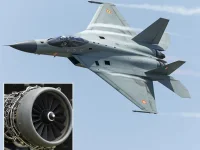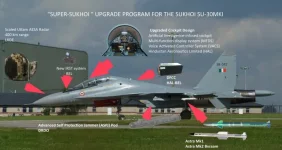- Views: 2K
- Replies: 6

In a significant move to enhance national security, the Cabinet Committee on Security (CCS), led by Prime Minister Narendra Modi, has greenlit the third phase of India's Space-Based Surveillance (SBS) program.
This ambitious project, estimated at ₹26,968 crore, will see the deployment of 52 new satellites, significantly augmenting India's ability to monitor activities on land and at sea.
This initiative marks a critical step in strengthening India's domain awareness, with applications for both civilian and military purposes. The satellites, to be placed in low Earth orbit (LEO) and geostationary orbit (GEO), will provide crucial intelligence on enemy movements, infrastructure development in strategically vital areas, and potential threats to national security.
The project reflects a growing collaboration between the public and private sectors in India's space endeavors. The Indian Space Research Organisation (ISRO) will develop and launch 21 satellites, while private companies will contribute the remaining 31, highlighting the increasing role of the private sector in India's space ambitions.
This expansion of space-based surveillance comes amidst rising geopolitical tensions in the Indo-Pacific region. A key objective is to detect and counter the growing presence of hostile submarines in the Indo-Pacific waters, particularly in light of China's increasing assertiveness.
The satellites will also monitor infrastructure construction by adversaries along India's land borders, including the Line of Actual Control (LAC) with China and the border with Pakistan. This surveillance will enable India to respond effectively to any developments that could pose a security threat.
Beyond defence, the satellites will contribute to civilian applications such as disaster management, environmental monitoring, and infrastructure development.
The data gathered will aid in weather forecasting, forest cover assessment, and agricultural output analysis, supporting informed decision-making in areas like food security and urban planning.
The SBS program represents a continuation of India's efforts to enhance its space-based capabilities. Previous phases, initiated in 2001 and 2013, involved the launch of four and six surveillance satellites respectively.
The initiative also complements India's recent acquisition of 31 Predator drones from the US, further bolstering its surveillance capabilities. This, coupled with India's demonstrated anti-satellite capabilities, as showcased in a 2019 test, underscores the country's growing prowess in space technology and its strategic implications for national security.





